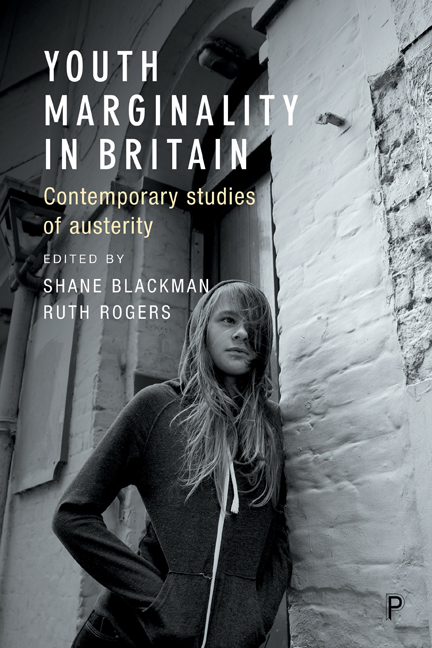sixteen - The new ‘spectral army’: biography and youth poverty on Teesside's deprived estates
Published online by Cambridge University Press: 05 April 2022
Summary
‘I need a job but no one will help me. I’d do anything, I swear to God, anything. I just want a job man. I just want to be able to get a job. I’ve tried and tried.’ (Carl, 26, unemployed)
Introduction
In spite of the significant interventions over successive decades, including the implementation of national government legislation (since repealed) to mitigate the effects of poverty and even to try to eradicate it, there are millions of people spanning all age groups who continue to live in poverty in the UK today. The Office for National Statistics (2016) shows that around one third of all people in the UK were living in income poverty at least once between 2011 and 2014, while the Child Poverty Action Group (2015) shows approximately 3.5 million young people alone who are currently living in poverty – equivalent to more than one quarter of the UK's entire youth population. Echoing Walter Greenwood (1933), they are the new ‘spectral army’.
Contrary to popular belief, most of these young people will be living in households where at least one parent is working. Poverty and Social Exclusion (PSE, 2015) and the Joseph Rowntree Foundation (MacInnes et al, 2015) also estimate that up to half of all young people in the UK are living in poverty – a rate that is increasing over time. Currently there are around one million unemployed young people in the UK and many millions more who are underemployed in jobs that bring little in way of income, security or satisfaction (Shildrick et al, 2012). The social and economic impact of the global financial crisis – and the resulting austerity programme that followed in the UK – has affected young people significantly, but little is known about the real consequences of poverty for the young and poor in the UK today. By and large, the underlying basis for undertaking the research upon which this chapter is based was mostly founded on a lack of qualitative research in the field of contemporary youth poverty (Blackman, 1997; Craine, 1997).
In Britain, there is already an impressive body of research evidence, which has built up over many years, studying the nature, extent and consequences of poverty.
- Type
- Chapter
- Information
- Youth Marginality in BritainContemporary Studies of Austerity, pp. 253 - 268Publisher: Bristol University PressPrint publication year: 2017



